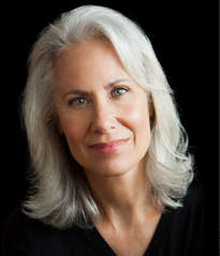Lynn Povich: We still have a long way to go
CBS News asked noted figures in the arts, business and politics about their experience in today's civil rights movement, or about figures who inspired them in their activism.
Lynn Povich, journalist; author ("The Good Girls Revolt"); in 1970 joined a landmark sex discrimination lawsuit again Newsweek
Please share how a civil rights figure influenced you personally.
Martin Luther King influenced all of us, but for me personally it was Eleanor Holmes Norton, now the Congressional Delegate from the District of Columbia. Eleanor started the NAACP Chapter at Oberlin when she was a student there. She started a chapter of CORE at Yale, where she earned two graduate degrees -- one in law and one in American studies. In 1963, she joined the SNCC voter registration drive in Mississippi, and later that summer helped organize the March on Washington. She also was one of the few black women leaders who said that black women should be part of the women's movement.
In 1970, when 46 female employees of Newsweek (myself included) sued the magazine for sex discrimination, she represented us and gave us a crash course in civil rights law and action.
Please share an experience in which you realized that the U.S. has/has not achieved equality in race, gender or sexual preference, and its impact on you.
In 2006, I started reporting "The Good Girls Revolt," my book about our landmark sex discrimination case -- we were the first female journalists to file such a complaint. I just assumed that since the lawsuit, much had changed for women in journalism, and certainly for women at Newsweek. But in 2010, I met some young women who were working at the magazine as writers (there are no longer researchers). They were experiencing some of the same obstacles that we had 40 years earlier! Guys with similar credentials who arrived when they did, or later, were getting better assignments, moving ahead faster and getting more pay for similar work.
That's when I realized that while we've come a long way, we still have a long way to go. It spurred me to re-engage with feminism and equal rights for working women.
What needs to happen in the next 50 years for equality to be fully realized in the U.S.?
First, we need to see more women and more diverse people in leadership positions. If you can't see it, you can't change it.
We need to start the conversation -- at home and at work -- to raise the issues that are keeping people from realizing their rightful places.
We need to enforce the laws already on the books that guarantee equal rights, equal pay and equal opportunities.
And we need to come together again as a nation to reignite the social protest movements that pressured our leaders to make the necessary changes.
For more info:
- lynnpovich.com
- Follow Lynn Povich on Twitter
- "The Good Girls Revolt: How the Women of Newsweek Sued their Bosses and Changed the Workplace" by Lynn Povich (Public Affairs); Also available in Trade Paperback and eBook formats
